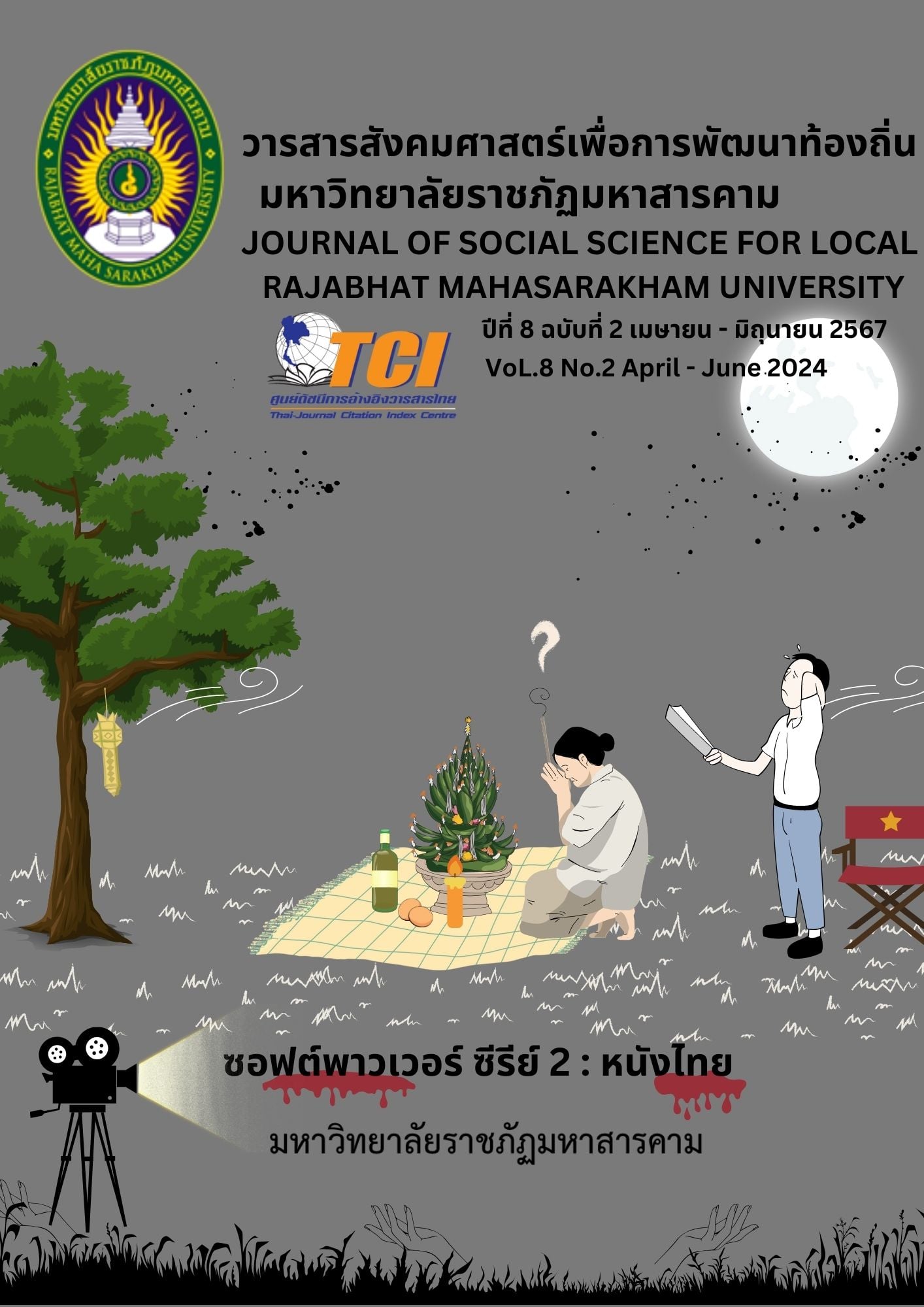Impact of the COVID-19 Pandemic on English Language Proficiency Among Students at Phetchabun Rajabhat University: A Case Study
Keywords:
Online Language Learning, COVID-19 Educational Impact, English Proficiency ChallengesAbstract
This research consists purposes were 1. investigate challenges faced by Business English students at Phetchabun Rajabhat University (PRCU) within online learning environments 2. evaluate the impact of these environments on English language proficiency and 3. identify technological obstacles impacting learning outcomes. A mixed-methods approach, grounded in constructivist principles, combined quantitative and qualitative data. A questionnaire administered to 85 students provided quantitative insights, while interviews with 12 students and 5 educators yielded qualitative perspectives. The sample was selected using the Taro Yamane formula (0.05 error level, random sampling). Quantitative data underwent analysis using descriptive statistics (percentages, means, standard deviations) and comparative tests (t-tests, F-statistic tests). Content analysis was applied to qualitative data from interviews and literature reviews, enriching the quantitative findings. Results revealed that 68% of students encountered significant challenges within online learning, primarily due to insufficient opportunities for interaction and feedback, crucial for language acquisition. These issues were compounded by varying levels of self-discipline and motivation, negatively affecting participation. A decline in English proficiency was observed among 28% of students, particularly in practical business contexts. This decline was attributed to reduced opportunities for conversational practice and limited immersion in English-speaking environments, essential for fluency in business communication. Technological barriers, such as unreliable internet access and limited digital literacy, further obstructed the transition to online education. These challenges disproportionately affected remote students, highlighting the digital divide. However, the situation also revealed opportunities for enhancing flexibility and adaptability to online resources, suggesting avenues for curricular improvement.


